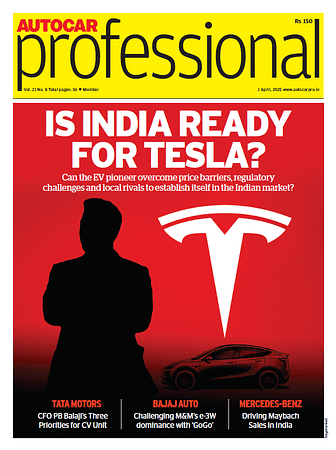Indian Consumers Value Quality and Technology in Automotive Purchases, Deloitte Study Finds
Indian vehicle buyers prioritize safety and innovation while showing openness to new mobility models, signaling shifts in automotive market trends amid growing interest in sustainable options.
Indian consumers rank product quality and safety as top priorities when purchasing vehicles, with 62 percent placing these factors above price considerations, according to Deloitte's 2025 Global Automotive Consumer Study released Tuesday. The report also reveals that 72 percent of Indian consumers are willing to switch vehicle brands, indicating lower brand loyalty compared to other markets.
The study highlights a significant openness among Indian consumers to share personal data, with 88 percent willing to provide identifiable information to manufacturers or third parties for features like anti-theft tracking. This rate substantially exceeds the 60 percent willingness observed in the United States, demonstrating greater trust in data-driven mobility solutions among Indian consumers.
"The Electric Vehicle movement is gaining undeniable momentum, driven by consumer interest in sustainability and long-term cost benefits," said Rajat Mahajan, Partner and Automotive Sector Leader at Deloitte India. "Yet, barriers such as charging infrastructure, upfront costs and battery longevity continue to influence consumers."
While global electric vehicle sales growth has moderated, the report indicates continued interest in hybrid vehicles (21 percent) and battery electric vehicles (8 percent) among Indian consumers. Fast charging capability remains a priority for 36 percent of respondents, emphasizing the importance of charging infrastructure in adoption decisions.
The survey also reveals a generational shift in vehicle ownership preferences, with 70 percent of consumers aged 18-34 open to replacing car ownership with Mobility-as-a-Service solutions. This trend reflects changing mobility preferences driven by financial considerations and urban convenience factors.
Traditional dealership models face potential disruption as 76 percent of Indian consumers express preference for purchasing vehicles directly from manufacturers, pointing to the growing influence of digital platforms and manufacturer-led sales channels in reshaping the car-buying experience.
The automotive industry in India has been undergoing significant transformation in recent years, with the government pushing for greater electrification through policies like the FAME (Faster Adoption and Manufacturing of Hybrid and Electric Vehicles) scheme and production-linked incentives. Despite these efforts, electric vehicles still represent a small portion of overall automotive sales in India, with infrastructure challenges and price sensitivity remaining significant factors.
Conducted between October and December 2024, the Deloitte survey polled 1,000 Indian consumers of driving age across urban (75 percent), suburban (17 percent), and rural (9 percent) locations. The respondent pool maintained near gender parity with 52 percent male and 48 percent female participants across various age groups.
RELATED ARTICLES
India Signs First Defence MoU with Slovakia Through JCBL Group
JCBL's defence arm partners with Slovakia to develop indigenous combat vehicle technologies, strengthening India's defen...
Oben Electric Eyes Rs 428 Crore In Its Second Funding Round In 2025
With 99% localization, Oben Electric manufactures its own lithium-iron-phosphate (LFP) batteries, motors, and VCUs.
Landmark Cars Reports 17.31% Year-on-Year Revenue Growth in Q4FY25
Total revenue reaches Rs. 1,525 crore as company stabilizes operations after rapid expansion.






 By Angitha Suresh
By Angitha Suresh
 15 Apr 2025
15 Apr 2025
 876 Views
876 Views







 Yukta Mudgal
Yukta Mudgal

 Shruti Shiraguppi
Shruti Shiraguppi

